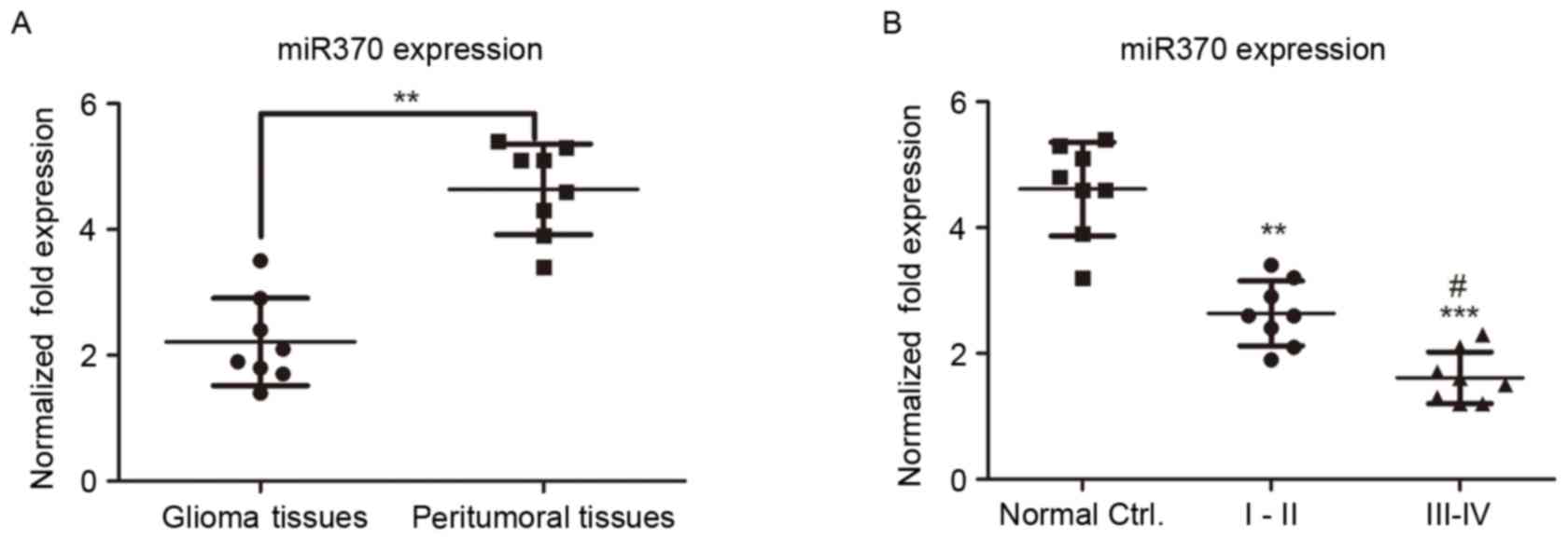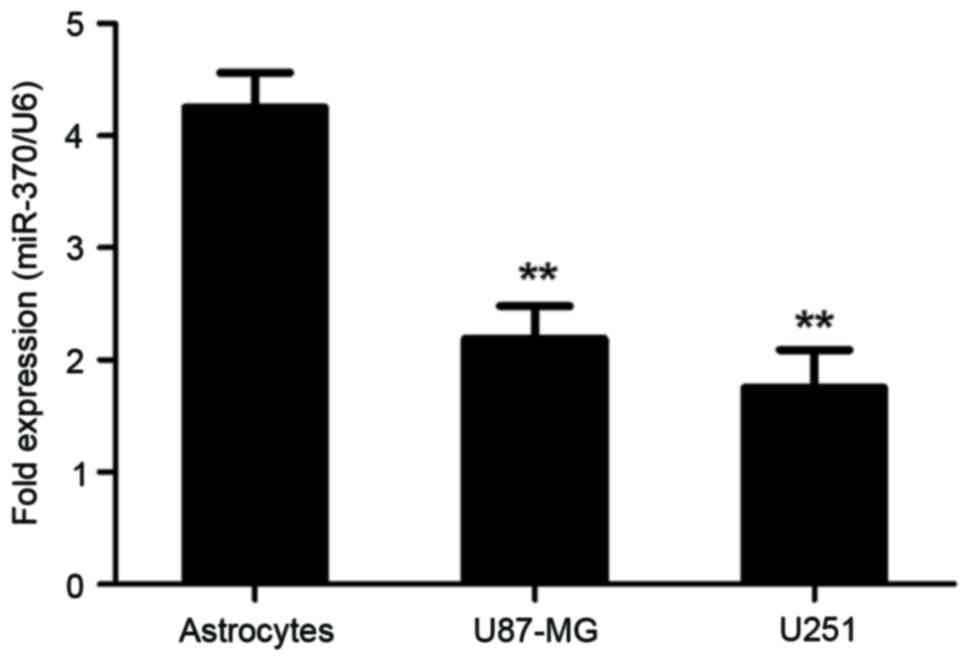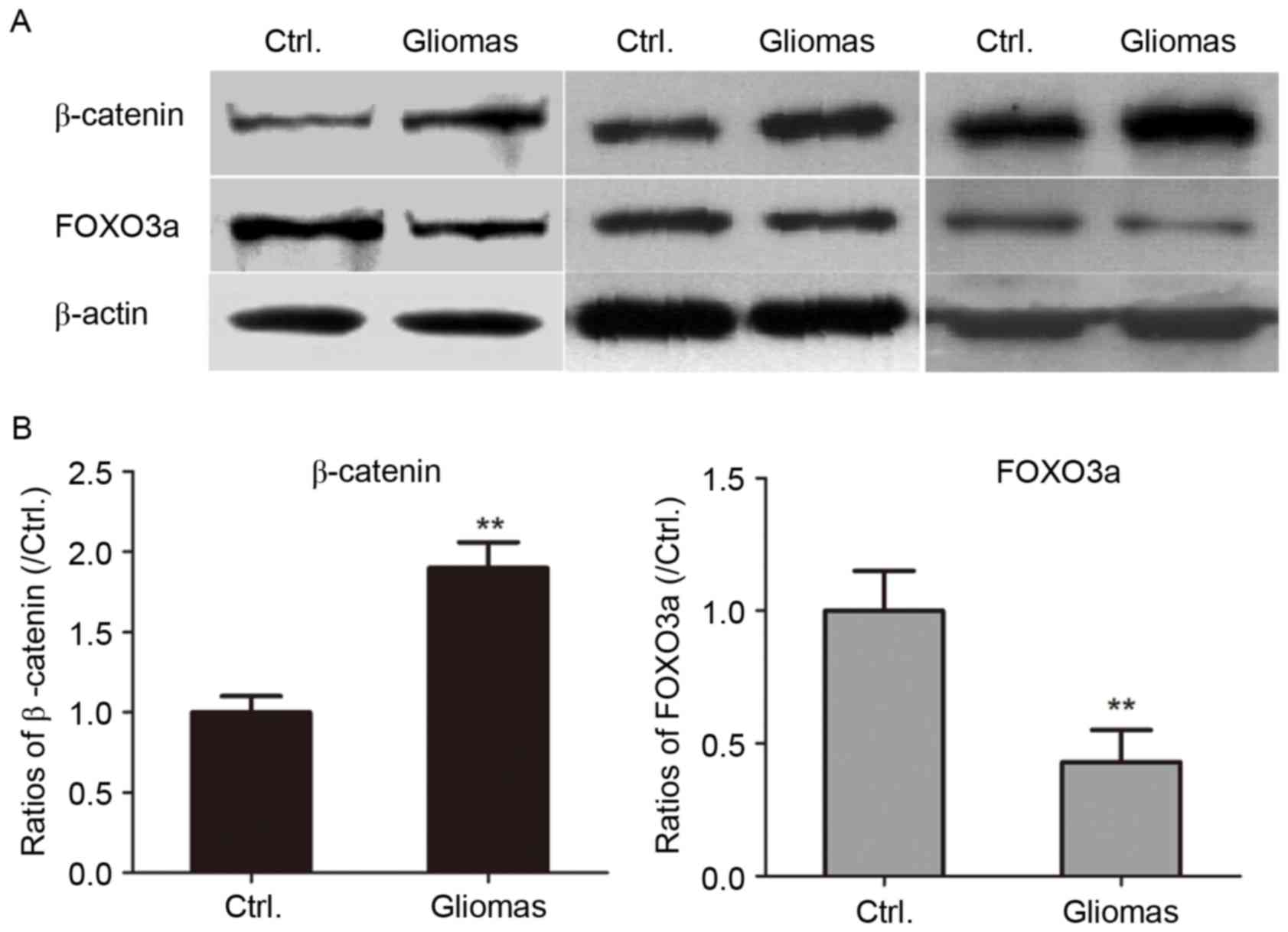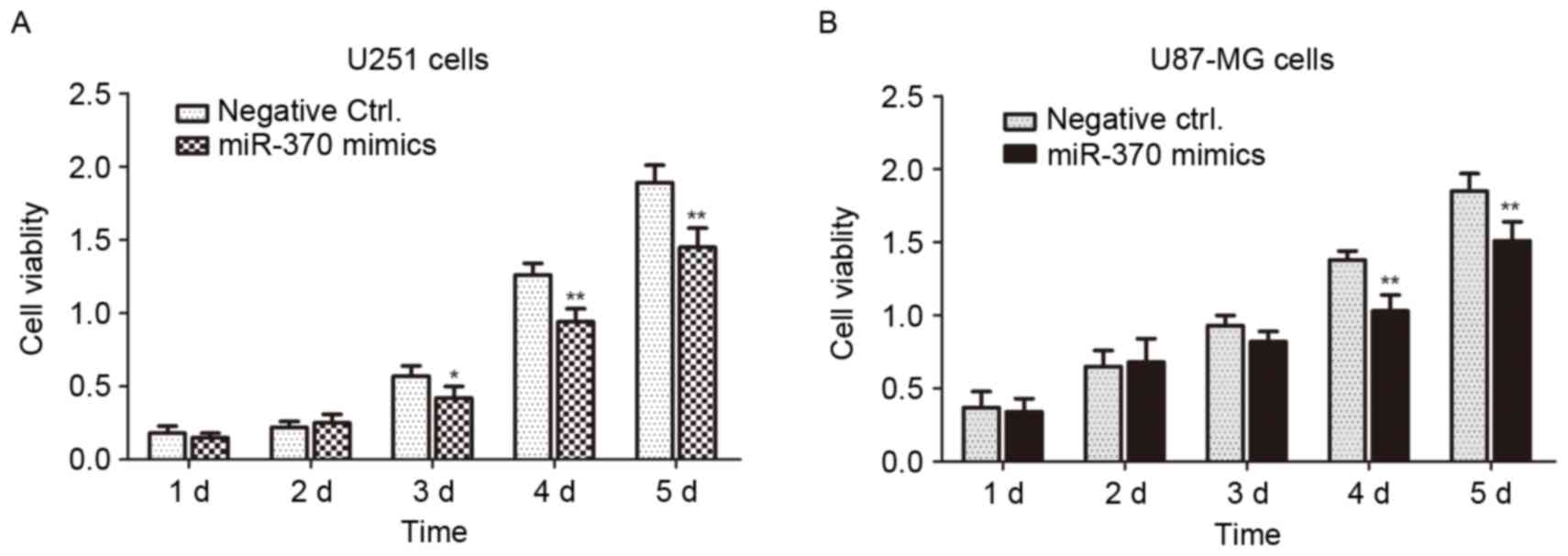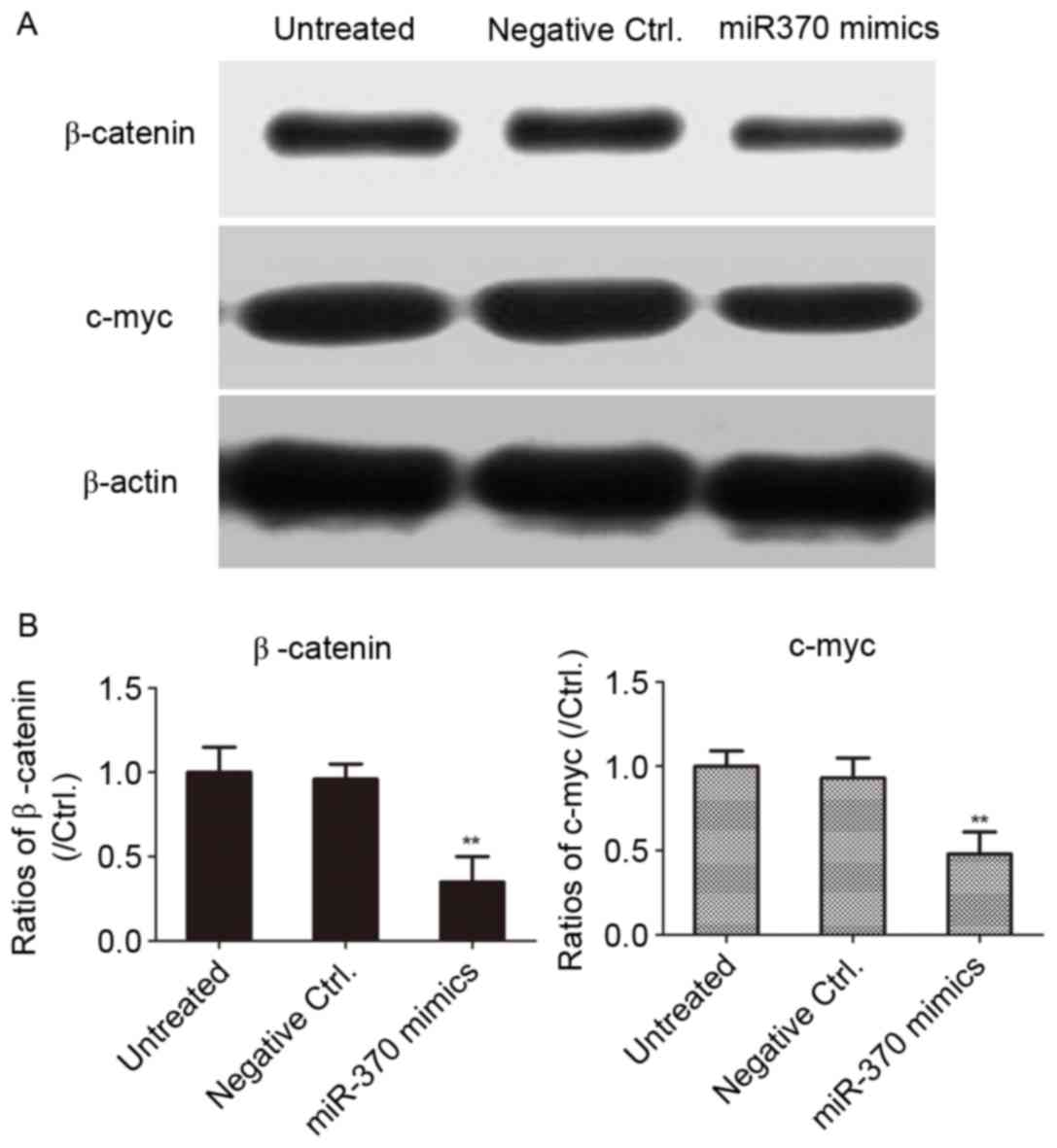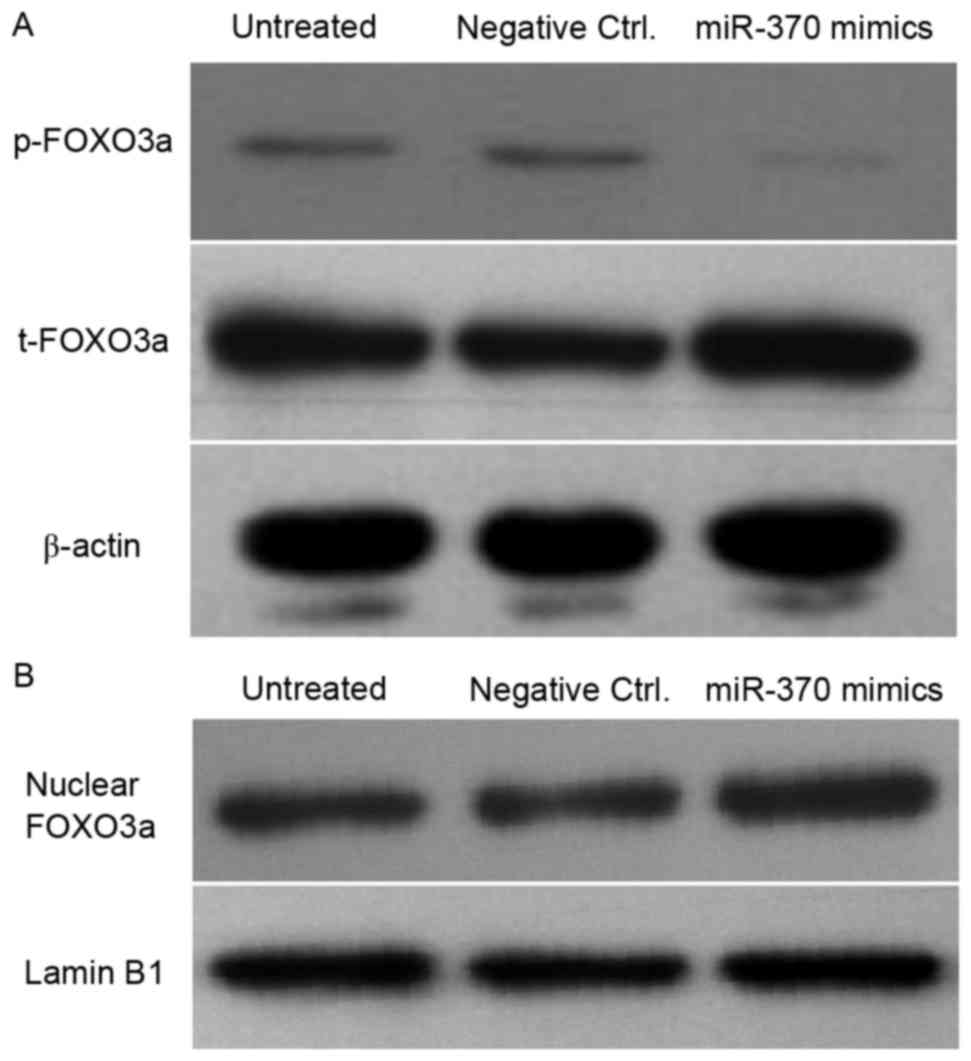|
1
|
Hirst TC, Vesterinen HM, Conlin S, Egan
KJ, Antonic A, Lawson McLean A, Macleod MR, Grant R, Brennan PM,
Sena ES and Whittle IR: A systematic review and meta-analysis of
gene therapy in animal models of cerebral glioma: Why did promise
not translate to human therapy? Evid Based Preclin Med.
1:e000062014. View
Article : Google Scholar : PubMed/NCBI
|
|
2
|
Wang X, Chen JX, Zhou Q, Liu YH, Mao Q,
You C, Chen N, Xiong L, Duan J and Liu L: Statistical report of
central nervous system tumors histologically diagnosed in the
sichuan province of China from 2008 to 2013: A west China glioma
center report. Ann Surg Oncol. 23 Suppl 5:S946–S953. 2016.
View Article : Google Scholar
|
|
3
|
Bauer R, Kaiser M and Stoll E: A
computational model incorporating neural stem cell dynamics
reproduces glioma incidence across the lifespan in the human
population. PLoS One. 9:e1112192014. View Article : Google Scholar : PubMed/NCBI
|
|
4
|
Matyja E, Grajkowska W, Stepien K and
Naganska E: Heterogeneity of histopathological presentation of
pilocytic astrocytoma-diagnostic pitfalls. A review. Folia
Neuropathol. 54:197–211. 2016. View Article : Google Scholar : PubMed/NCBI
|
|
5
|
Borghei-Razavi H, Shibao S and Schick U:
Prechiasmatic transection of the optic nerve in optic nerve glioma:
Technical description and surgical outcome. Neurosurg Rev.
40:135–141. 2017. View Article : Google Scholar : PubMed/NCBI
|
|
6
|
Luderer MJ, Muz B, de la Puente P,
Chavalmane S, Kapoor V, Marcelo R, Biswas P, Thotala D, Rogers B
and Azab AK: A hypoxia-targeted boron neutron capture therapy agent
for the treatment of glioma. Pharm Res. 33:2530–2539. 2016.
View Article : Google Scholar : PubMed/NCBI
|
|
7
|
Bouffet E and Ramaswamy V: Old
chemotherapy makes a comeback: Dual alkylator therapy for pediatric
high-grade glioma. Neuro Oncol. 18:1333–1334. 2016. View Article : Google Scholar : PubMed/NCBI
|
|
8
|
Cordier D, Krolicki L, Morgenstern A and
Merlo A: Targeted radiolabeled compounds in glioma therapy. Semin
Nucl Med. 46:243–249. 2016. View Article : Google Scholar : PubMed/NCBI
|
|
9
|
Barajas RF Jr, Butowski NA, Phillips JJ,
Aghi MK, Berger MS, Chang SM and Cha S: The development of reduced
diffusion following bevacizumab therapy identifies regions of
recurrent disease in patients with high-grade glioma. Acad Radiol.
23:1073–1082. 2016. View Article : Google Scholar : PubMed/NCBI
|
|
10
|
Cai Y, Yu X, Hu S and Yu J: A brief review
on the mechanisms of miRNA regulation. Genomics Proteomics
Bioinformatics. 7:147–154. 2009. View Article : Google Scholar : PubMed/NCBI
|
|
11
|
Xu X, Yang X, Xing C, Zhang S and Cao J:
miRNA: The nemesis of gastric cancer (Review). Oncol Lett.
6:631–641. 2013.PubMed/NCBI
|
|
12
|
Ma H, Wu Y, Yang H, Liu J, Dan H, Zeng X,
Zhou Y, Jiang L and Chen Q: MicroRNAs in oral lichen planus and
potential miRNA-mRNA pathogenesis with essential cytokines: A
review. Oral Surg Oral Med Oral Pathol Oral Radiol. 122:164–173.
2016. View Article : Google Scholar : PubMed/NCBI
|
|
13
|
Mehta R, Otgonsuren M, Younoszai Z, Allawi
H, Raybuck B and Younossi Z: Circulating miRNA in patients with
non-alcoholic fatty liver disease and coronary artery disease. BMJ
Open Gastroenterol. 3:e0000962016. View Article : Google Scholar : PubMed/NCBI
|
|
14
|
Srinivasan H and Das S: Mitochondrial
miRNA (MitomiR): A new player in cardiovascular health. Can J
Physiol Pharmacol. 93:855–861. 2015. View Article : Google Scholar : PubMed/NCBI
|
|
15
|
Daimiel-Ruiz L, Klett-Mingo M,
Konstantinidou V, Micó V, Aranda JF, García B, Martínez-Botas J,
Dávalos A, Fernández-Hernando C and Ordovás JM: Dietary lipids
modulate the expression of miR-107, a miRNA that regulates the
circadian system. Mol Nutr Food Res. 59:1865–1878. 2015. View Article : Google Scholar : PubMed/NCBI
|
|
16
|
Zhou X, Jeker LT, Fife BT, Zhu S, Anderson
MS, McManus MT and Bluestone JA: Selective miRNA disruption in T
reg cells leads to uncontrolled autoimmunity. J Exp Med.
205:1983–1991. 2008. View Article : Google Scholar : PubMed/NCBI
|
|
17
|
Shaked A, Chang BL, Barnes MR, Sayre P, Li
YR, Asare S, DesMarais M, Holmes MV, Guettouche T and Keating BJ:
An ectopically expressed serum miRNA signature is prognostic,
diagnostic, and biologically related to liver allograft rejection.
Hepatology. 65:269–280. 2017. View Article : Google Scholar : PubMed/NCBI
|
|
18
|
Cramer DW and Elias KM: A prognostically
relevant miRNA signature for epithelial ovarian cancer. Lancet
Oncol. 17:1032–1033. 2016. View Article : Google Scholar : PubMed/NCBI
|
|
19
|
Lin YC, Lin JF, Tsai TF, Chou KY, Chen HE
and Hwang TI: Tumor suppressor miRNA-204-5p promotes apoptosis by
targeting BCL2 in prostate cancer cells. Asian J Surg. 40:396–406.
2017. View Article : Google Scholar : PubMed/NCBI
|
|
20
|
Zhang X, Zeng J, Zhou M, Li B, Zhang Y,
Huang T, Wang L, Jia J and Chen C: The tumor suppressive role of
miRNA-370 by targeting FoxM1 in acute myeloid leukemia. Mol Cancer.
11:562012. View Article : Google Scholar : PubMed/NCBI
|
|
21
|
Mollainezhad H, Eskandari N, Pourazar A,
Salehi M and Andalib A: Expression of microRNA-370 in human breast
cancer compare with normal samples. Adv Biomed Res. 5:1292016.
View Article : Google Scholar : PubMed/NCBI
|
|
22
|
Peng Z, Wu T, Li Y, Xu Z, Zhang S, Liu B,
Chen Q and Tian D: MicroRNA-370-3p inhibits human glioma cell
proliferation and induces cell cycle arrest by directly targeting
β-catenin. Brain Res. 1644:53–61. 2016. View Article : Google Scholar : PubMed/NCBI
|
|
23
|
Allen M, Bjerke M, Edlund H, Nelander S
and Westermark B: Origin of the U87MG glioma cell line: Good news
and bad news. Sci Transl Med. 8:354re32016. View Article : Google Scholar : PubMed/NCBI
|
|
24
|
Livak KJ and Schmittgen TD: Analysis of
relative gene expression data using real-time quantitative PCR and
the 2(-Delta Delta C(T)) method. Methods. 25:402–408. 2001.
View Article : Google Scholar : PubMed/NCBI
|
|
25
|
Yang M, Pi H, Li M, Xu S, Zhang L, Xie J,
Tian L, Tu M, He M, Lu Y, et al: From the Cover: Autophagy
induction contributes to cadmium toxicity in Mesenchymal stem cells
via AMPK/FOXO3a/BECN1 signaling. Toxicol Sci. 154:101–114. 2016.
View Article : Google Scholar : PubMed/NCBI
|
|
26
|
Sun G, Hou YB, Jia HY, Bi XH, Yu L and
Chen DJ: MiR-370 promotes cell death of liver cancer cells by
Akt/FoxO3a signalling pathway. Eur Rev Med Pharmacol Sci.
20:2011–2019. 2016.PubMed/NCBI
|
|
27
|
Denysenko T, Annovazzi L, Cassoni P,
Melcarne A, Mellai M and Schiffer D: WNT/β-catenin signaling
pathway and downstream modulators in low- and high-grade glioma.
Cancer Genomics Proteomics. 13:31–45. 2016.PubMed/NCBI
|
|
28
|
Guan H, Song L, Cai J, Huang Y, Wu J, Yuan
J, Li J and Li M: Sphingosine kinase 1 regulates the Akt/FOXO3a/Bim
pathway and contributes to apoptosis resistance in glioma cells.
PLoS One. 6:e199462011. View Article : Google Scholar : PubMed/NCBI
|
|
29
|
Amberger VR, Hensel T, Ogata N and Schwab
ME: Spreading and migration of human glioma and rat C6 cells on
central nervous system myelin in vitro is correlated with tumor
malignancy and involves a metalloproteolytic activity. Cancer Res.
58:149–158. 1998.PubMed/NCBI
|















